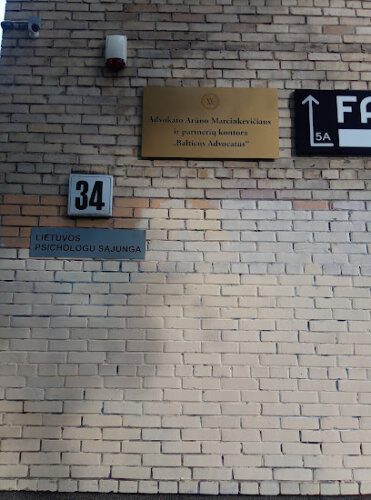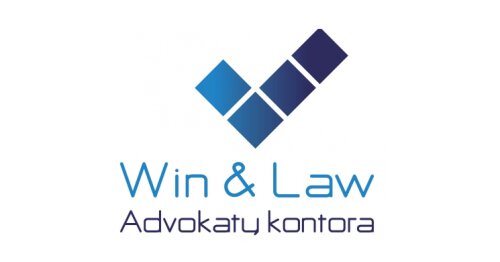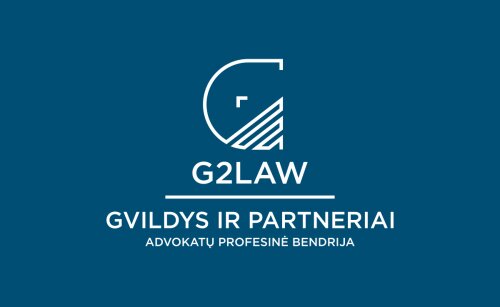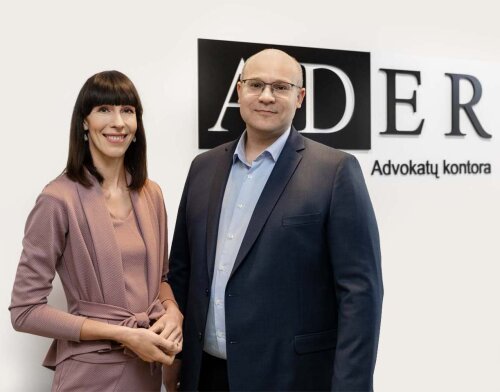Best Education Law Lawyers in Republic of Lithuania
Share your needs with us, get contacted by law firms.
Free. Takes 2 min.
Or refine your search by selecting a city:
List of the best lawyers in Republic of Lithuania


About Education Law in Republic of Lithuania
Education Law in the Republic of Lithuania covers the legal framework governing the country's education system, including the rights and duties of students, teachers, and educational institutions. It seeks to ensure equal access to education, maintain education quality standards, and safeguard the interests of those involved in educational processes. The legal structure is primarily influenced by the Law on Education, which addresses aspects ranging from preschool to higher education.
Why You May Need a Lawyer
There are several situations where individuals or institutions may require legal assistance in the field of Education Law in Lithuania:
- Disputes over admission requirements or processes in public or private schools.
- Issues related to the disciplinary actions against students or teachers.
- Concerns about the quality of education or compliance with national education standards.
- Cases related to special education needs or the rights of students with disabilities.
- Matters involving the rights and obligations of educational staff.
- Contractual disputes involving educational institutions.
Local Laws Overview
Key aspects of local laws relevant to Education Law in Lithuania include:
- Law on Education: This is the primary law governing education, establishing the basic legal rights and responsibilities within the education system.
- Law on Higher Education and Research: Provides the framework for university-level education and research activities.
- Child Rights Protection Law: Ensures the protection of children's rights within the educational context.
- Anti-Discrimination Laws: Establish guidelines for preventing discrimination in educational settings.
- Data Protection Laws: Dictate how educational institutions can collect and process personal data of students and staff.
Frequently Asked Questions
What are my child’s rights in the Lithuanian education system?
Children in Lithuania have the right to receive education and be treated fairly and respectfully in educational institutions, without discrimination.
At what age is education compulsory in Lithuania?
Education is compulsory from the age of 7 to 16 in Lithuania.
Can I home-school my child in Lithuania?
Home-schooling is allowed under certain conditions, primarily focused on ensuring the child receives a comparable level of education to that provided by the national school system.
What should I do if I believe my child's school is not adhering to national education standards?
You can raise the issue with school authorities first, and if not resolved, approach the local education administration or seek legal advice.
How can disputes between teachers and educational institutions be resolved?
Disputes can often be resolved through mediation or through a complaint to the relevant educational authorities or labor disputes commissions.
What are the steps to take if a child with disabilities is not receiving appropriate education?
Parents should first communicate with the school to address the issue. If unresolved, they may contact local educational authorities or legal advisors specializing in education rights for assistance.
How is student privacy protected in educational institutions?
Educational institutions must comply with personal data protection laws, ensuring student data is collected and processed lawfully and securely.
Are private schools in Lithuania subject to the same regulations as public schools?
While private schools have more flexibility in their curricula, they must still comply with national education standards and regulations.
What are the requirements for opening a private educational institution in Lithuania?
Founders must obtain accreditation, adhere to specific standards, and ensure compliance with national educational laws.
How are educational qualifications recognized in Lithuania?
Recognition of educational qualifications is conducted by specific government bodies that evaluate foreign and domestic certifications to ensure they meet national standards.
Additional Resources
For further legal guidance and information on Education Law in Lithuania, the following resources can be helpful:
- Ministry of Education, Science and Sport of the Republic of Lithuania
- State Child Rights Protection and Adoption Service
- Lithuanian National Public Education Association
- National Centre for Education Quality Assurance
- Consumer Protection Boards for issues related to education services
Next Steps
If you require legal assistance in Education Law, consider the following steps:
- Identify your specific legal issue or concern related to education.
- Collect all relevant documents and evidence related to your case.
- Research or contact a legal expert specializing in Education Law.
- Schedule a consultation to discuss your situation and receive tailored legal advice.
- Consider exploring mediation or negotiation before pursuing litigation, where possible.
Lawzana helps you find the best lawyers and law firms in Republic of Lithuania through a curated and pre-screened list of qualified legal professionals. Our platform offers rankings and detailed profiles of attorneys and law firms, allowing you to compare based on practice areas, including Education Law, experience, and client feedback.
Each profile includes a description of the firm's areas of practice, client reviews, team members and partners, year of establishment, spoken languages, office locations, contact information, social media presence, and any published articles or resources. Most firms on our platform speak English and are experienced in both local and international legal matters.
Get a quote from top-rated law firms in Republic of Lithuania — quickly, securely, and without unnecessary hassle.
Disclaimer:
The information provided on this page is for general informational purposes only and does not constitute legal advice. While we strive to ensure the accuracy and relevance of the content, legal information may change over time, and interpretations of the law can vary. You should always consult with a qualified legal professional for advice specific to your situation.
We disclaim all liability for actions taken or not taken based on the content of this page. If you believe any information is incorrect or outdated, please contact us, and we will review and update it where appropriate.
Browse education law law firms by city in Republic of Lithuania
Refine your search by selecting a city.












